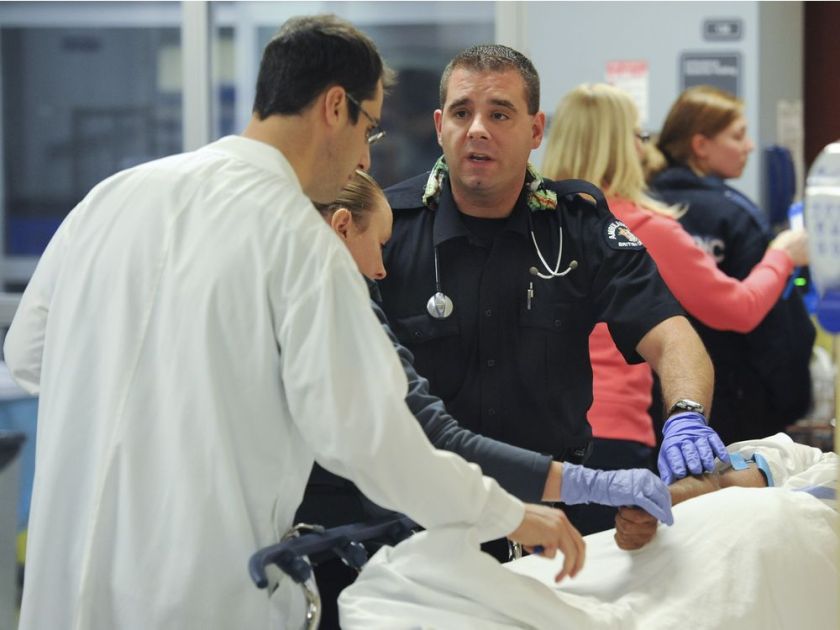In 2021, over five million Canadians reported drinking heavily at least once a month and an estimated 20 per cent will be affected by alcohol use disorder (AUD) or dependence within their lifetime. AUD is a medical condition that can have a significant impact on a person’s health, contributing to over 18,000 deaths annually in Canada and more than $5 billion in health care costs. But suddenly decreasing or stopping alcohol consumption can come with its own issues for those affected by AUD and could require a trip to the emergency department (ED).

“We commonly treat patients in the ED who arrived with alcohol-related issues. This can take the form of intoxication or, if they stopped drinking alcohol abruptly, alcohol withdrawal, which can be life threatening,” explained Advancing Health Program Head of Emergency Medicine Dr. Frank Scheuermeyer.
Alcohol withdrawal can cause serious issues including anxiety, nausea, seizures, coma, and death, so visits to the ED are understandable and absolutely encouraged.
“A person with a mild case of alcohol withdrawal will likely completely improve without any medical attention,” said Dr. Scheuermeyer, Director of Research at St. Paul’s Hospital Emergency Department and UBC’s Department of Emergency Medicine. “If symptoms are more severe, they may need medications — typically sedatives such as benzodiazepines — and a short-term observation in the hospital. If symptoms become very severe, they may require sedation and admission to the intensive care unit.”
Who is most likely to return after discharge?
Unfortunately, research has shown that up to 25 per cent of ED visits for alcohol withdrawal result in an ED revisit just one week later, which is significantly higher than the general ED population. To understand why, Dr. Scheuermeyer recently analyzed data from alcohol withdrawal patients discharged from three EDs in Vancouver (St. Paul’s, Lions Gate, and Mount St. Joseph’s hospitals) between 2015 and 2018 to determine patient characteristics, ED treatments, and the outcome of ED revisits one week after discharge.
Co-authored by Advancing Health Scientists Drs. Brian Grunau, Eric Grafstein, Andrew Kestler, and Skye Barbic and published in the Canadian Journal of Emergency Medicine, the research looked at 935 ED visits among 593 patients discharged with a diagnosis of alcohol withdrawal. Using existing data on patient demographics, ED investigations, and hospital discharge summaries, they found that, among these patients, there was a 15 per cent chance that they would revisit the ED within one week of discharge.
Several factors were significantly indicative of whether a patient would return to the ED within a week of discharge: an ED visit within the previous 30 days and no fixed address, a higher initial blood alcohol level, and more severe withdrawal symptoms.
“Our findings can support clinicians in identifying which patients are at most risk of return to the ED, which will help them develop the most appropriate discharge plan and connect patients to support services,” said Dr. Scheuermeyer.

Compassion goes a long way
What if a patient who previously attended hospital due to alcohol withdrawal returns to the ED several times following discharge? As Dr. Scheuermeyer points out, it can be hard to identify when this is the case given that health records are not necessarily linked throughout the province. But when a patient is been recognized as a repeat visitor to the ED, it’s important to consider several things.
“Has their mood decreased? Is there a stressful change in their life? Has a support been withdrawn? In each case, although the solutions are probably beyond the ED, we can make arrangements to be assessed by a mental health worker, support worker, or addictions team member,” said Dr. Scheuermeyer. “In some cases, patients with mild withdrawal may require a short-term hospital admission to stabilize social supports. St. Paul’s is fortunate as we have a very active addictions team that is skilled at looking at the entire patient and not just the alcohol use disorder.”
Regardless of whether someone has approached the ED due to alcohol withdrawal for the first time or the thirtieth, it is important to recognize the courage it can take. People living with addictions continue to face stigma, which is one of the biggest barriers to accessing treatment and care. Through choosing the right words, the right tone, and the right body language, Dr. Scheuermeyer says that we can help patients going through AUD and alcohol withdrawal feel more comfortable and confident to get the help they need.
“Emergency care workers need to take the time and listen to patients. Sometimes taking a few extra minutes and finding out why a patient may be visiting the ED more often than is ‘usual’ can make a lot of difference. Once you have the entire story, you are in a better position to provide additional resources,” concluded Dr. Scheuermeyer.
—



